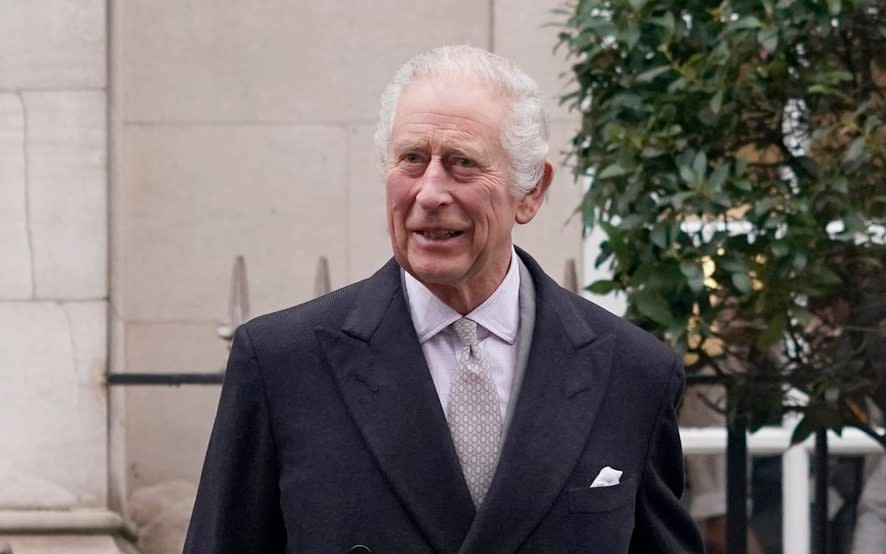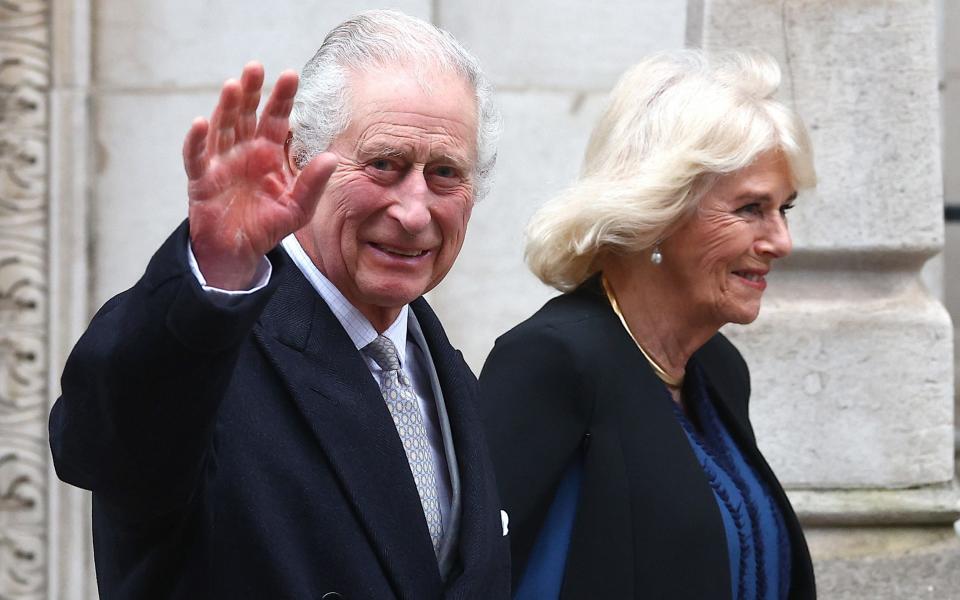It’s right that the King gets top-tier cancer care – but so should everyone relying on the NHS

As someone old enough to remember a time when the expression “the c-word” wasn’t used ironically, I salute Buckingham Palace for keeping us (sort of) informed about the King’s cancer treatment.
It would be nice if they dampened speculation about exactly what kind of cancer it is; if we are all grown up enough to discuss breasts, cervixes and prostates without tittering, I should have thought Reeta Chakrabarti and Tom Bradby could be trusted to say “colorectal” or “bladder” without dissolving into nervous laughter.
Hey ho, each to their own. My mother insisted the intensive care nurses call her Mrs Woods right up to her final days; dignity is difficult to define.
Some things at least unite us, and whether royalist or republican, it is surely impossible not to sympathise with a 75-year-old man who has dedicated his life to public service and now needs cancer care.
Nevertheless, it’s also impossible not to compare and contrast his five-star treatment – which began immediately – with the distress and dismay experienced by a great many of his subjects languishing on waiting lists for their own life-saving interventions.
As is inevitable, social media is a blizzard of outrage and confrontation, bloody-minded heartlessness and wilful misconstrual. In more polite society, we are eggshelling through the whole topic, at great pains not to seem peevish even as we murmur about our concerns.
So, for the avoidance of any doubt: we wish His Majesty well. But. Our king deserves the best of care. However. It’s nothing personal. And yet – it couldn’t be more personal.
With all due respect (and in this instance, we do actually mean it), it’s not about the folderol or the flunkies. Nobody gives a hoot that he’s travelling to and from outpatient appointments in a Sikorsky S-76C chopper.
Resentment is the wrong word for what we feel. But what is the right one to describe our emotional response, given the second class – sometimes Third World – system the rest of us have to negotiate?

Buckingham Palace has not specified whether the King is receiving private healthcare or being treated on the National Health Service. Does it matter? Yes and no.
The NHS isn’t free. We pay for every penny. But it’s a postcode lottery and that is the very definition of unfairness. Nobody expects a king to be treated like a commoner. But why shouldn’t top-tier cancer care be more common?
“Very best wishes to His Majesty,” writes Telegraph reader John Rushton, before adding: “What a contrast, diagnosed one week and treatment starting the next week. My wife was diagnosed with lung cancer mid-October 2023 and she had to wait until February 2 2024 for her operation on the NHS.”
And that, in a nutshell, sums up the debate. This is about us, not him. Our monarch’s fast-track treatment has thrown into sharp relief our everyday reality.
Another reader, Solomon Wise, posted this: “NHS is a national disgrace and entirely the fault of successive governments to fix it once and for all. For crying out loud, it isn’t difficult, just copy one of the vastly superior national health system models that do provide the standard of service ordinary people deserve – just as much as some titled person.”
Hear, hear! An election is looming. Britain’s pusillanimous politicians have a stark choice: to keep peddling the same old nostalgia-drenched lies about a health service that ill-serves far too many of us, or tell the truth about a creaking behemoth that is simply not fit for our 21st-century purposes.
The proportion of patients in England waiting less than two months from an urgent suspected cancer referral or consultant upgrade to their first definitive treatment for cancer is 65.9 per cent, according to the most recent figures. The target is 85 per cent.
And even when patients reach the front of the queue, survival rates for cancer in the UK lag behind those of other European countries for nine out of 10 of the most common types of the disease, according to an NHS Confederation report that was published in January 2023.
Just months later, former cancer tsar Prof Sir Mike Richards, arguably the country’s most eminent oncologist, told this paper: “In all honesty, we’ve been lagging behind other countries for 20 or 25 more years. Perhaps longer.”
That’s not good enough.
We’re not fools, as attested by a comprehensive does-what-it-says-on-the-tin survey carried out by the Health Foundation last year entitled How the Public Views the NHS at 75. The findings revealed that the pragmatic people of these isles are far more capable of nuanced opinion than those who seek to govern us.
To whit; while 54 per cent of respondents said the NHS was their greatest source of national pride, only 25 per cent believed it would still be largely free at the point of delivery in 10 years’ time and just 17 per cent felt the NHS was ready to meet the demands of an ageing population.
As the NHS lurches from one crisis to the next, our elected representatives are too spineless to grasp the nettle of root and branch reform – and that cowardice is costing lives. Cancer Research analysis last year showed nearly 40,000 patients had suffered potentially deadly delays in treatment.
Yes, His Majesty is ill and is rightly getting world-class care. But the disquiet gripping us has nothing to do with the House of Windsor privilege, and everything to do with Westminster paralysis.
If a cat may look at a king, why can’t a cancer-stricken taxpayer be treated like one? It’s called Our NHS for a reason.

